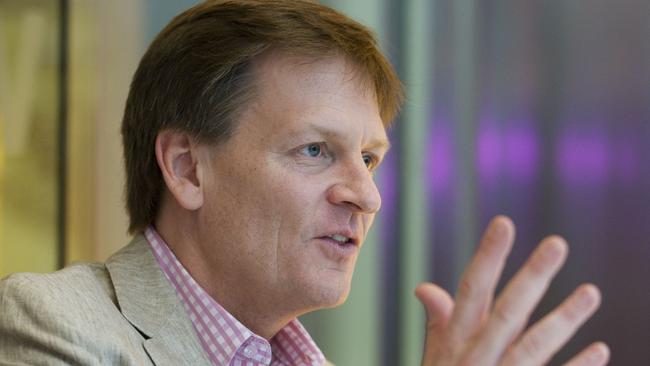Top earners: F. Scott Fitzgerald; Michael Lewis; Obama; Victor Hugo
We hear a lot about how little writers earn, and it’s true by and large. But how about the top earners?

We hear a lot about how little writers earn, and it’s true by and large. Today, though, I want to touch on a few of the top earners. In last week’s review of F. Scott Fitzgerald’s I’ll Die for You and Other Lost Stories, it was noted that at his peak he earned $US4000 per short story, the equivalent of $US55,000 ($72,000) or so today. Elsewhere I read that American writer Michael Lewis (Moneyball, The Big Short) is paid $US10 a word by Vanity Fair, and he considers that a bit Scroogish: “it’s five times that for the books”. On that calculation the words alone in Lewis’s new book, The Undoing Project, are worth about $US6 million.
I wish I were on the same pay grade. This column would earn me 45,000 Pacific pesos. I do think Lewis is a superb writer on financial markets, the people who play with them and the impact that has on the rest of us. And he is a penny stocks punter compared with Barack Obama and his wife, Michelle, who have received a reported $US60m from Penguin Random House for their White House memoirs. The Obamas have promised to donate a significant proportion of the proceeds to charities.
The No 1 earner is American thriller writer James Patterson, who has headed the Forbes list of highest paid authors for three years in a row. His 2016 pay cheque was $US95m. Patterson is a generous philanthropist, with a focus on schools, universities, libraries and literacy in general.
But the most paid for a single book was secured by Victor Hugo in 1861, according to David Bellos’s accounting in The Novel of the Century: The Extraordinary Adventure of Les Miserables. Hugo received 300,000 French francs, about $US3.8m in today’s money. Bellos points out that Hugo’s deal with a Belgian publisher was for only an eight-year licence. “It was a tremendous amount of money, and since it entitled the publisher to own the work for only eight years, it remains the highest figure ever paid for a work of literature.” I wonder how much Rusty Crowe was paid to sing as Inspector Javert in the 2012 film version.
***
Today’s column, were you to be reading the print version of Review, would appear shorter than usual. But also wider. Shorter and wider: that’s a transformation I corporeally hope to avoid. In typographical terms, it’s called a bastard measure, which I suppose comes from it being irregular, an illegitimate intruder into the printed Review’s four-column pages.
Thinking of this took me back to my high school days, to woodwork classes, where we would allow, on receiving payment of 20c or so, a fellow student to take a bastard file to our work-in-progress. Back then I didn’t wonder why it was called a bastard file, because I saw the damage the coarse bastard could do to a footstool or teapot stand. Today I read that it may have something to do with its in-between toothiness, or that it may go back to medieval heraldry, when a strip on a coat of arms indicated a suspect family line. Of course there were lots of royal bastards in medieval England, and lots afterwards. Shakespeare’s most famous one is Edmund in King Lear, who finishes his soliloquy about how he will see off the legitimate Edgar with our quote of the week: “Now, gods, stand up for bastards!”
***
That takes us to this week’s uncertain usage update, which comes from Darwin reader Jennifer Dowling, who also uses the nom de guerre Capital Letters. Perhaps with smartphone correspondence in mind, she has a message for people who type only in lower case: “We are the difference between helping your Uncle Jack off a horse and helping your uncle jack off a horse.”
***
Congratulations to the five writers shortlisted for the $60,000 Miles Franklin Award: Emily Maguire for An Isolated Incident, Mark O’Flynn for The Last Days of Ava Langdon, Ryan O’Neill for Their Brilliant Careers, Philip Salom for Waiting and Josephine Wilson for Extinctions. Literary podcaster The Garret has posted interviews with each author. The site also has some terrific interviews with the likes of Miles Franklin incumbent AS Patric, Christos Tsiolkas, Mia Freedman, Carmel Bird, Andy Griffiths, Anita Heiss, Graeme Simsion, Toni Jordan and Tony Birch.


